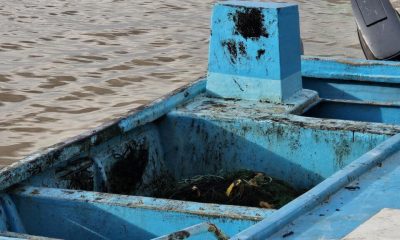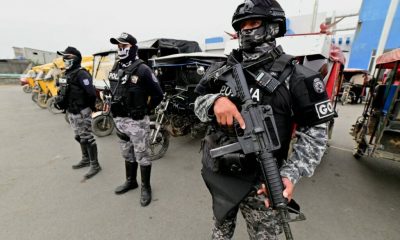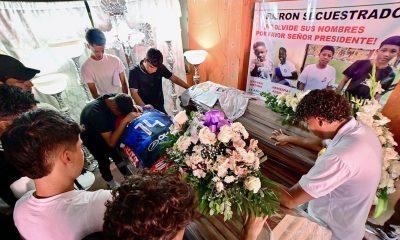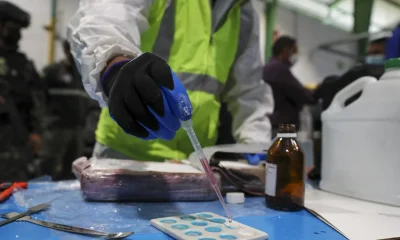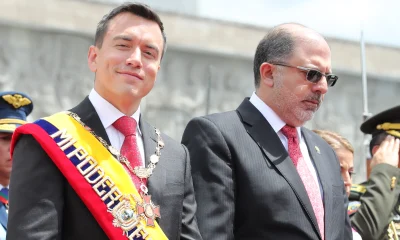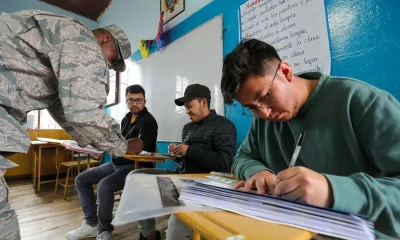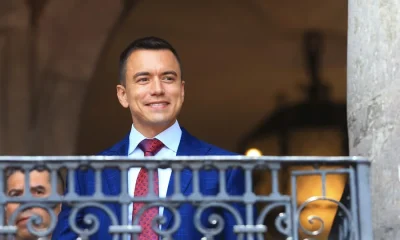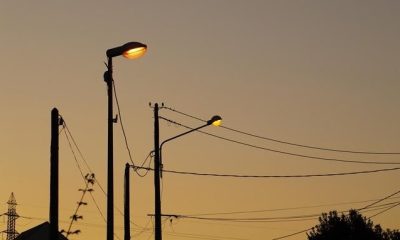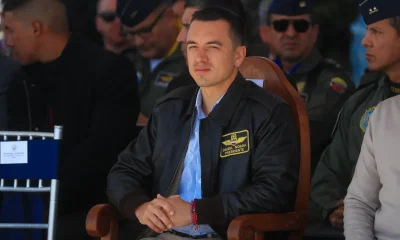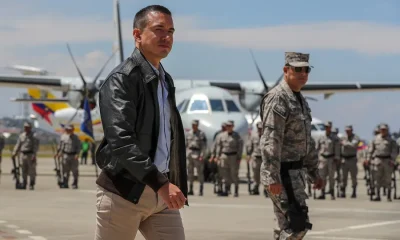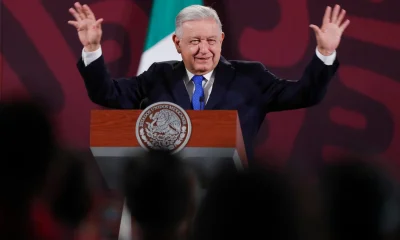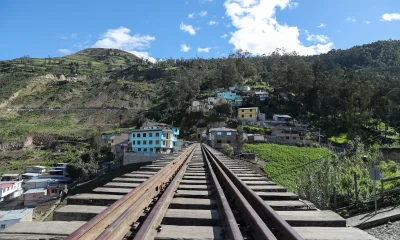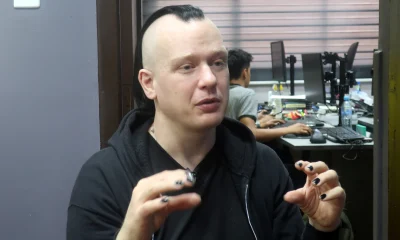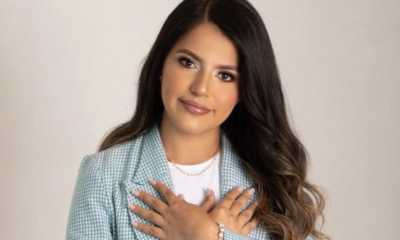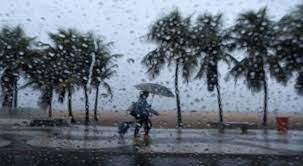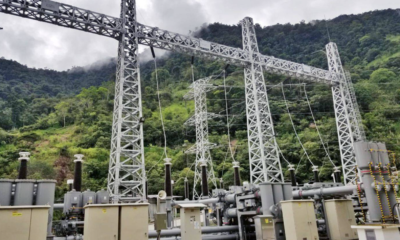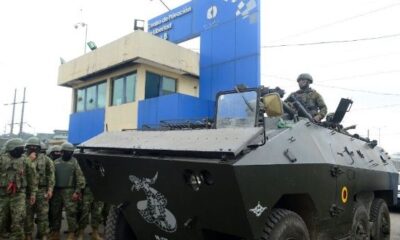International
The trial for the murder of presidential candidate Fernando Villavicencio begins in Ecuador
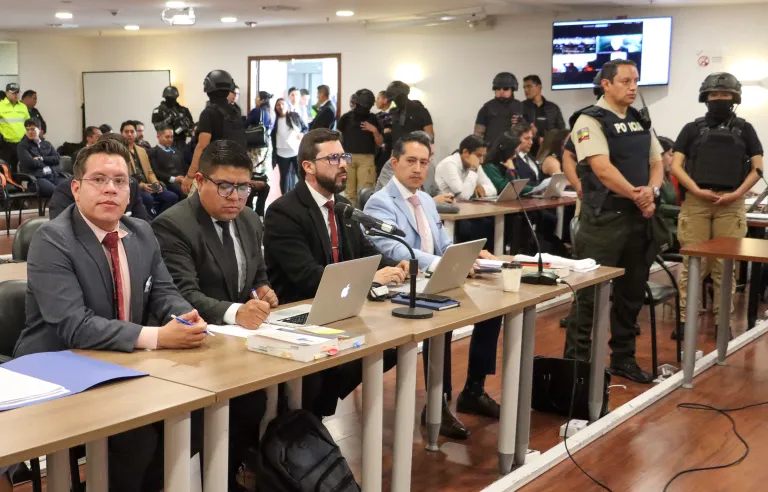
The Justice of Ecuador began on Tuesday the trial for the murder of the then presidential candidate Fernando Villavicencio, at the hands of hitmen on August 9, 2023, eleven days before the celebration of the first round of the extraordinary general elections.
When presenting the facts at the trial hearing, the Prosecutor’s Office recalled that the attackers shot and injured 14 people, including Villavicencio, 3 police officers, political militants and a person who was driving in a vehicle.
At the hearing, a video was also presented with the anticipated testimony of a protected witness who narrated his participation in previous planning meetings, but not in the murder of the one who was a candidate for the Ecuadorian presidency.
In the version he pointed out that one of those involved in the crime would have told him days after the murder that “that head (that of Fernando Villavicencio) was worth 200,000 dollars and was sent to be done by the Government of Correa,” the Primicias portal published.
Former President Rafael Correa, who ruled Ecuador between 2007 and 2017, reacted on his social network X account to the publication of Primicias: “It was time… The same formula: protected and anonymous ‘witness’. Anyway…”
The Prosecutor’s Office recalled that after the attack in Villavicencio he was transferred to a clinic, where his death was confirmed, while the attackers fled with the exception of one, “who was neutralized at the scene and transferred to the flagrante deception unit, where his death was confirmed.”
He added that the Police raided a home in Quito where he arrested six people for their alleged participation in the crime: Andrés M., José L., Adey G., Camilo R., Jules C. and Jhon R., now deceased, so the criminal action against them was extinguished.
The investigations determined the alleged involvement of seven other people: Carlos A., Laura C. Erick R., Alfonso F., Alexandra Ch., José M. (deceased) and another citizen who was dismissed, the Prosecutor’s Office added.
He pointed out that Carlos A. alias “invisible” considered a mediate author, was part of the criminal group called ‘Los Lobos’ and on the day of the murder he was imprisoned in a prison.
“Through a cell phone he gave the disposition to Johan C. (deceased) to execute the shots,” the Public Ministry said, adding that Laura C. would have been in charge of the logistics, and Alexandra Ch. would be an accomplice because she sent information from inside the site where Villavicencio led the political rally.
On this first day, the defense of alias ‘Invisible’ expressed that the phone from which the information that relates his defendant to the case has been extracted is contaminated, since since the beginning of the case it was violated with the due chain of custody, Primicias narrated.
At the trial hearing, installed on the fourth attempt and under a strong security device, Hugo Espin, lawyer for Villavicencio’s wife, Verónica Sarauz, recalled that seven of the defendants were murdered.
“We have always had the concern that the investigation was quite biased to the part of the execution of the crime, not to the intellectual authorship,” he said.
And he said that they will now review “within the versions and within the different exhibitions that will be held, precisely how far we should take an investigation and, eventually, we have already analyzed the presentation of a different complaint that makes a goal case.”
In the early hours of this Tuesday’s hearing, the versions of four witnesses from the Prosecutor’s Office were heard, including the police officer in charge of the removal of the body of Villavicencio.
The murdered political leader participated in the extraordinary elections called after the then head of state, Guillermo Lasso, dissolved Parliament and called for elections, in which Daniel Noboa finally triumphed in the second round.
International
U.S. Senate Rejects Budget, Bringing Government Closer to Shutdown Amid DHS Dispute

The U.S. Senate voted on Thursday against a budget proposal in a move aimed at pressuring changes at the Department of Homeland Security (DHS), following the killing of two civilians during a deployment of immigration agents in Minneapolis.
All Senate Democrats and seven Republican lawmakers voted against the bill, which requires 60 votes to advance, pushing the country closer to a partial government shutdown that would cut funding for several agencies, including the Pentagon and the Department of Health.
The rejection came as Senate leaders and the White House continue negotiations on a separate funding package for DHS that would allow reforms to the agency. Proposed measures include banning Immigration and Customs Enforcement (ICE) agents from wearing face coverings and requiring them to use body-worn cameras during operations.
The vote took place just hours after President Donald Trump said he was “close” to reaching an agreement with Democrats and did not believe the federal government would face another shutdown, following last year’s record stoppage.
“I don’t think the Democrats want a shutdown either, so we’ll work in a bipartisan way to avoid it. Hopefully, there will be no government shutdown. We’re working on that right now,” Trump said during a Cabinet meeting at the White House.
International
Trump Says Putin Agreed to One-Week Halt in Attacks on Ukraine Amid Extreme Cold

U.S. President Donald Trump said on Thursday that he secured a commitment from Russian President Vladimir Putinto halt attacks against Ukraine for one week, citing extreme weather conditions affecting the region.
“Because of the extreme cold (…) I personally asked Putin not to attack Kyiv or other cities and towns for a week. And he agreed. He was very pleasant,” Trump said during a Cabinet meeting broadcast by the White House.
Trump acknowledged that several advisers had questioned the decision to make the call.
“A lot of people told me not to waste the call because they wouldn’t agree. And he accepted. And we’re very happy they did, because they don’t need missiles hitting their towns and cities,” the president said.
According to Trump, Ukrainian authorities reacted with surprise to the announcement but welcomed the possibility of a temporary ceasefire.
“It’s extraordinarily cold, record cold (…) They say they’ve never experienced cold like this,” he added.
Ukrainian President Volodymyr Zelensky later commented on the announcement, expressing hope that the agreement would be honored.
International
Storm Kristin Kills Five in Portugal, Leaves Nearly 500,000 Without Power

Storm Kristin, which battered Portugal with heavy rain and strong winds early Wednesday, has left at least five people dead, while nearly half a million residents remained without electricity as of Thursday, according to updated figures from authorities.
The revised death toll was confirmed to AFP by a spokesperson for the National Emergency and Civil Protection Authority (ANPEC). On Wednesday, the agency had reported four fatalities.
Meanwhile, E-Redes, the country’s electricity distribution network operator, said that around 450,000 customers were still without power, particularly in central Portugal.
Emergency services responded to approximately 1,500 incidents between midnight and 8:00 a.m. local time on Wednesday, as the storm caused widespread disruptions.
The Portuguese government described Kristin as an “extreme weather event” that inflicted significant damage across several regions of the country. At the height of the storm, as many as 850,000 households and institutions lost electricity during the early hours of Wednesday.
Several municipalities ordered the closure of schools, many of which remained shut on Thursday due to ongoing adverse conditions.
Ricardo Costa, regional deputy commander of the Leiria Fire Brigade, said residents continue to seek assistance as rainfall persists.
“Even though the rain is not extremely intense, it is causing extensive damage to homes,” he noted.
In Figueira da Foz, a coastal city in central Portugal, strong winds toppled a giant Ferris wheel, underscoring the severity of the storm.
-

 Central America4 days ago
Central America4 days agoGuatemala seizes over a ton of cocaine hidden in flour at Pacific port
-

 International5 days ago
International5 days agoDelcy Rodríguez seeks political agreements after Maduro’s ouster
-

 International4 days ago
International4 days agoHistoric snowstorm paralyzes Toronto after 60 centimeters of snow
-

 Central America3 days ago
Central America3 days agoGuatemala Police Arrest Prison Guard Caught in the Act of Extortion
-

 Central America3 days ago
Central America3 days agoBukele leads public trust rankings as UCA survey highlights gains in security
-

 Central America3 days ago
Central America3 days agoHonduras swears in conservative president Asfura after disputed election
-

 International4 days ago
International4 days agoSpain’s irregular migrant population rises to 840,000, study finds
-

 International5 days ago
International5 days agoFederal immigration agents kill man in Minneapolis, sparking protests and outrage
-

 International1 day ago
International1 day agoFootball Fan Killed in Clashes After Colombian League Match
-

 International3 days ago
International3 days agoWinter Storm Fern Leaves 30 Dead and Over One Million Without Power Across the U.S.
-

 Central America1 day ago
Central America1 day agoGuatemala President Says Starlink Terminal Found Inside Prison
-

 Sin categoría3 days ago
Sin categoría3 days agoEight Killed in Series of Armed Attacks in Ecuador’s Manabí Province
-

 International3 days ago
International3 days agoDoomsday clock moves to 85 seconds before midnight amid rising global risks
-

 International4 days ago
International4 days agoRights group says nearly 6,000 killed in Iran protest crackdown
-

 International1 day ago
International1 day agoMissing Spanish Sailor Rescued After 11 Days Adrift in Mediterranean
-

 International1 day ago
International1 day agoRubio Says U.S. Could Participate in Follow-Up Russia-Ukraine Talks
-

 International3 days ago
International3 days agoSpain approves plan to regularize up to 500,000 migrants in Historic Shift
-

 Sin categoría3 days ago
Sin categoría3 days agoEl Salvador Launches Fourth Year of Ocean Mission to Protect Marine Ecosystems
-

 International4 days ago
International4 days agoVenezuela frees at least 80 political prisoners, NGO says
-

 International4 days ago
International4 days agoEU launches new probe into X over AI-generated fake nude images
-

 International11 hours ago
International11 hours agoU.S. Senate Rejects Budget, Bringing Government Closer to Shutdown Amid DHS Dispute
-

 International4 days ago
International4 days agoSevere winter storm grips U.S., leaves multiple dead as extreme cold persists
-

 International4 days ago
International4 days agoFrance debates ban on social media for children under 15
-

 International11 hours ago
International11 hours agoStorm Kristin Kills Five in Portugal, Leaves Nearly 500,000 Without Power
-

 International11 hours ago
International11 hours agoTrump Says Putin Agreed to One-Week Halt in Attacks on Ukraine Amid Extreme Cold
-

 International12 hours ago
International12 hours agoMan Arrested After Vehicle Crashes Into Jewish Institution in Brooklyn

























